 Sámegillii
Sámegillii  På norsk
På norsk
Articles about Sami school history
Part 19 - printed in Ávvir 13.10.2010
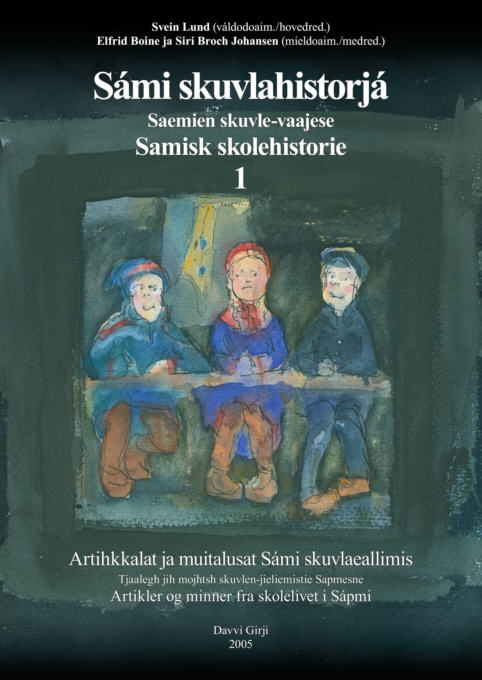 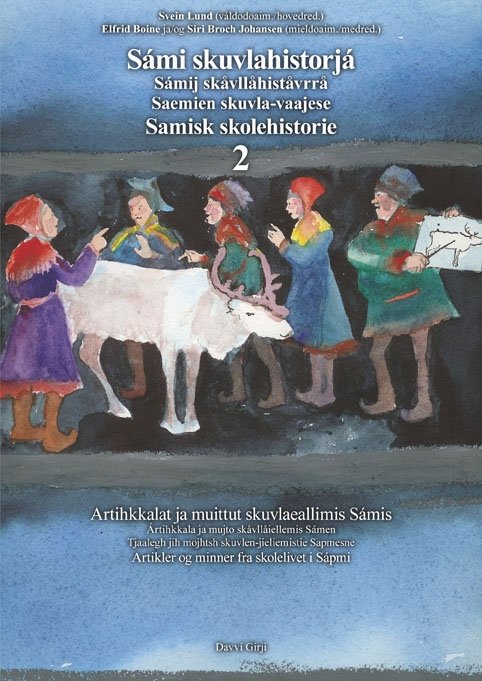 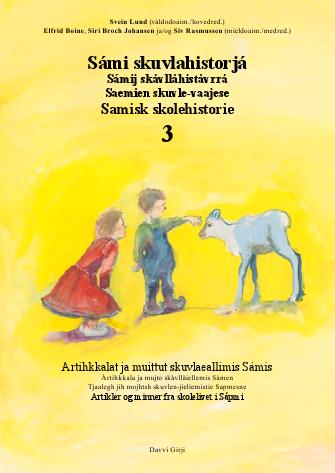 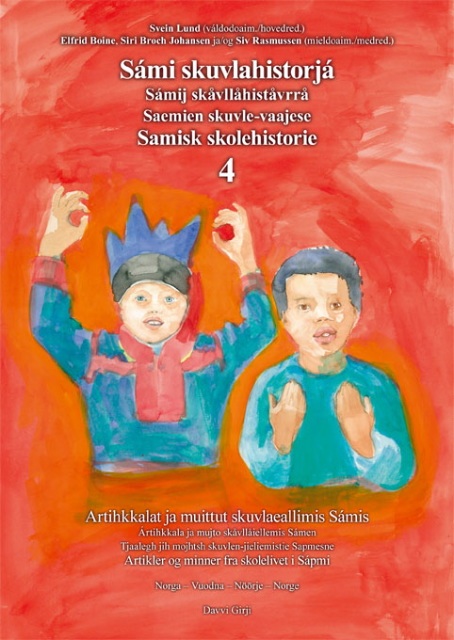 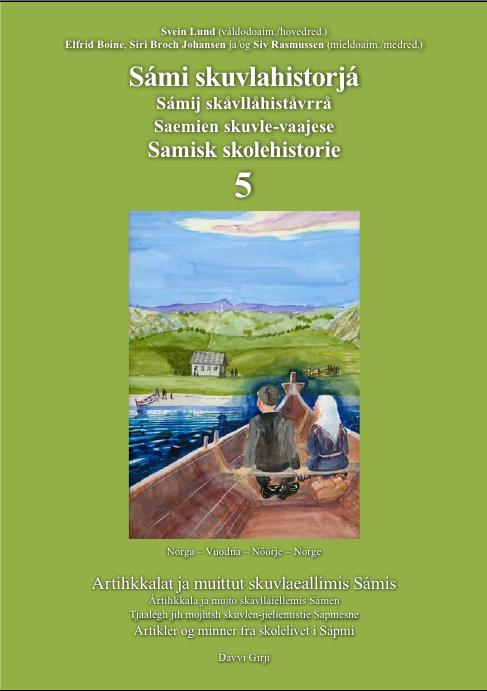
Do you know Sami school history?Sámi skuvlahistorjá / Samisk skolehistorie (Sami School History) is a series of books published by the publishing house Davvi Girji. In about 200 articles in 5 volumes there is told about the experiences of Sami children in Norwegian schools, and about the changes in the educational politics of the Norwegian authorities towards the Sami population. The books are published with parallell text in Sami and Norwegian language.In this web site some of the articles of the first book are also published in English. It would be too much to translate it all, so to make this history available to a greater public, we are translating a series of newspaper articles, which sorted by topics make a summary of stories in the books. So far there are 28 articles published in Sami language by the Sami newspapers Min Áigi and Ávvir. They are also published here in Norwegian and the English version will be published gradually as they are translated. These articles are edited by the main editor, Svein Lund. Besides him the editing board of the book series consist of Elfrid Boine, Siri Broch Johansen and Siv Rasmussen. |
Through the ages the church has excerted a great influence on the school, both for Norwegian and maybe particularly Sami pupils. Knowledge of Christianity was one of the main subjects in school, and until 1889 the pastor was the natural leader of the school council. At the regional level the bishop was the highest leader of the school system until the arrangement of Director of schools was started in 1860. For many years to come the priest was a natural member of the school council and the bishop of the Diocese Board of Directors, which functioned as the school administration in the diocese. Many of the leaders on different levels in the school system also had a background from theological studies.
Among them the opinions differed widely concerning wether the Sami should be taught in their own language, or if they should be Norwegianized/Danified. Both parties partly used religious arguments, that God did not understand Sami or that every people is entitled to get teaching in the language "God has placed in their hearts".
In this article we will have a look at some of the priests, preachers, missionaries and bishops who argued in favor of teaching in Sami. All quotes come from Sami School History 4.
The first known missionary among the Sami in Norway was Thomas von Westen, who was clear that the Sami should be taught in their own mother tongue. He emphasized this completely, and was not concerned wether the Sami should learn Norwegian. Very few of his writings have been preserved, and we have not been able to find any writings where he explains his view on the languages. He was opposed by the bishop in his time, and also the successor of the bishop was an eager Norwegianizer.
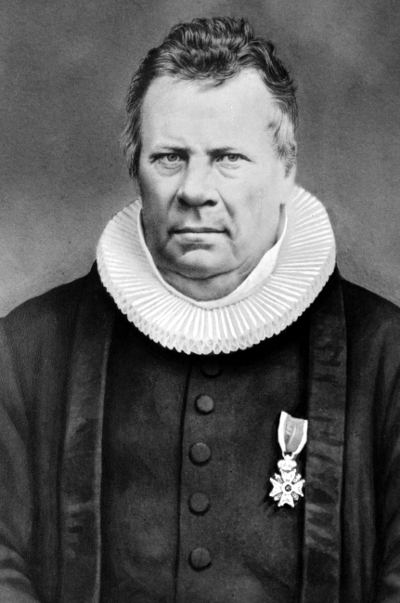 | Fredrik W. Deinboll (Photo: Finnmark county library) |
One of the missionaries of von Westens was Knud Leem, and he wrote a lot more than his leader. Leem wrote:
They (the Lapps) have a particular desire to hear the words of God spoken in their own language, which is clearly felt in the many tears they shed when loosing a teacher, that has been proficient of their language. ...
There are those, who hold the education of the Lapps (Sami) in the main points of our Christian teachings in their own language a prized and most necessary act for the enlightenment of the ignorant; but there are also those, who hold the same for an unnecerssary and superfluous work and claims, that one should oblige the Lapps to let themselves be taught solely in our Danish tongue. Those, who seem to think they are right in such an assertion, reveal their ignorance to the Lapps' customs and the nature of their livelihood and of the conveniences of the places where they stay. To acuostom all the Lapps, in particular the Mountain-Lapps to the Danish language to such an extent that they would be able to listen to and understand Danish sermons and cathecizations for thorough enlightenment and development, is completely impossible. ...
Adding to this: We would indeed like to hear the word of God spoken in our own language. It would be very difficult and regrettable to us if we were denied the opportunity to take in the word of God in our mothers-tongue, which we from childhood on are accustomed to, and thereagainst in punishment we would be imposed to listen to and learn it in a foreign tongue. Any reasonable person comprehends, that it must be in the same way for the Lapps, and that they must find themselves more joyous, comforted and elevated when listening to the word of Gods in their own language in the place of a foreign one, of which they understand just a little, or sometimes nothing at all, which no one can testify better than me, who have been eyewitness to the particular piety they show when one preach to them and teach them in their own language, and how they on the contrary (I am speaking about the Mountain-Lapps), most oftenly, only show low piety when the teaching and the sermon are continued in the Norwegian language, and how they sometimes sit sleeping with the Danish hymn books upside down in their hands, while the priest is preaching. ...
A Danish schoolmaster, which does not understand Lappish, can teach the children to read in a Danish book, but he can not tell them what the words mean in Lappish, hence his teaching will be nothing but a sounding brass and a tinkling cymbal.
(Knud Leem, SSH4)
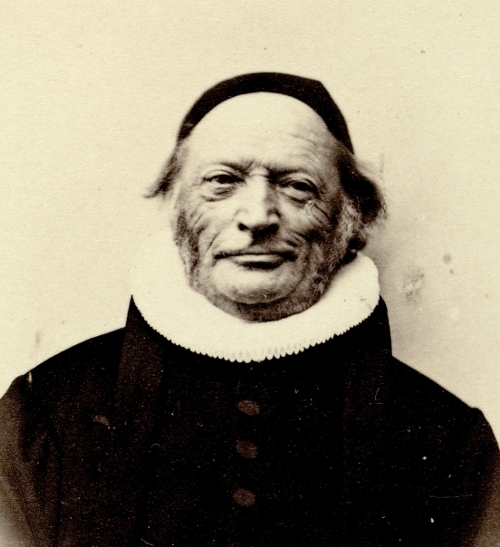 | Nils Vibe Stockfleth (Photo borrowed from the National Archives of Norway) |
Towards the middle of the 18th century, Ludvig Harboe came as a bishop, and he was the first to argue for bilingualism among the Sami. In 1748 he wrote in an instruction for a newly appointed missionary:
«The missionary himself should use all his diligence to learn the Lappish language, in which he can be of greater use and advantage for the Lapps trusted upon him, in their education and salvation. He should also demand the same from the school master, that he practices this language, in which he can be understood by the Lapps. Yet the Danish language should not be neglected by the Lapps, but it should be stressed strongly, that they all learn it.»
A similar view was upheld by the successor Johan Ernst Gunnerus, who in 1759 stated that the Sami probably should learn Norwegian, but that «it was strange to force them to let go of their mother tongue completely, which they love as greatly as any nation in the world».
But after the time of Gunnerus the church and school system was dominated for several decades by Danifiers, and the education in Sami was also strongly set back. Mathias Bonsach Krogh, who was the first bishop in Northern-Norway, reacted against this and wished to introduce Sami in the school again. The most important driving force in the early 19th century to reestablish the teaching in Sami was still Peter Wogelius Deinboll, who in 1816 came to Vadsø as pastor. He writes about Seminarium lapponicum, which educated teachers and missionaries for Sami areas:
Unfortunately this excellent nursery for coming teachers was completely shut down about 50 years ago. One established the principal that the Lapps should learn Norwegian, and only Norwegian books were to be distributed among them. The priests should, without knowing any Lappish, teach Lappish school teachers, and those again teach the youth, not in their mother tongue, but in a foreign language to them. The most sad consequences, common ignorance and the decay of religion, have shown the incorrectness of this method and the impossibility of repressing a language, which has been brought in with the mother's milk, a language, that has been sacred to the ancestors, and which not even Lapps ever will let themselves be deprived of.
(300 års strid, SSH4)
Further on he argues for the establishing of a teacher's college in Northern-Norway, with teaching both in Norwegian and Sami.
The one of the church's men to make the bigger contribution for Sami teaching after Thomas von Westen, was undoubtably Nils Vibe Stockfleth. As priest in Finnmark he used the Sami language actively, he translated Christian scriptures and published a Sami ABC and grammar.
As a priest, Stockfleth was mainly concerned with the spread of Christianity, and he reacted sharply against the abuse of religion to serve political purposes:
When one only wish to communicate the word of God to the Lapps in Norwegian, as long as the language of the people is Lappish, one is clearly combining a secondary goal with the preaching of religion, and link the communication of the highest good, to a condition or claim, which now in our days, wether it is concerning other nations, or if it should concern ourselves, «is declared a barbarism,» namely that, that a people thereby will be brought to give up their language. Fundamentally it is not concerning the priest and the school master, nor the teacher of religion, whether the Lapps should learn Norwegian or not; but it is their plight to communicate the word of God to them in the language that the farmers and the people understand. If they are not proficient in the Norwegian language, it is the plight of the teacher of religion to acquire knowledge of this, to avoid that there will be put obstacles in the way of the chief concern, the spreading of Christianity, and to avoid that generations will die as half-converted and half-Norwegianized pagans.
No higher power has authorized or entitled the priests, pastors and school teachers to use the gospel as a means serving political purposes. The gospel should be free of, and not tied to peculiar popular or political considerations! Centuries of experiences and testimonies have adequately proved, that the people can not become Christians if not through the language, which God once placed on it's lips.(Stockfleth, SSH4)
The quote above comes from a letter where Stockfleth is protesting against a decision the Storting made in 1851which started a process of Norwegianization which grew increasingly stronger. Those who after his time argued in favor of using Sami in the school, did so in opposition to the current national politics. Among them was the successor of Stockfleths as teacher of Sami at the University of Oslo, Jens Andreas Friis, who also had a theological education. In 1887 he wrote: «Once and for all, for the present time and the future, no matter what happens, I need to protest the school instruction which is followed now. I wish to have a clean conscience, I do not wish to bear the responsibility of not having protested.»
Also later several prominent persons within the church protested against the Norwegianization, but without gaining ground. Among them was the bishop Johannes Skaar, who founded the Norwegian Sami mission, the priest Jens Otterbech, who edited the books Fornorskningen i Finmarken (The Norwegianization in Finmark) and Kulturverdier hos Norges Finner (Cultural values among the Norwegian Lapps), his collaborator the Sami missionary preacher and teacher Johannes Hidle, pastor and reindeer husbandry inspector Kristian Nissen and the first headmaster of the Sami folk high school, Ottar Bondevik. All of them wrote contributions in newspapers and books opposing the politics of Norwegianization, and we have quoted most of them in the book Sami School History 4, or in the web-edition. There is not room to quote them all here, but we will close with a quote from Johannes Hidle:
What will the consequence of this teaching be? A few with good skills and with the opportunity to go to upper secondary school will manage to learn proper Norwegian. But those who are not so fortunate will at first have no development in the elementary school, followed by no other school. They will end up as uneducated and uninterested people, someone standing on the outside of common refinement, turning into a lower kind of human being which does not have respect for himself, and has no respect from others.
Is it worthy of us Norwegians to treat the Lapps (Sami) in such a manner?
(Johannes Hidle, SSH4)
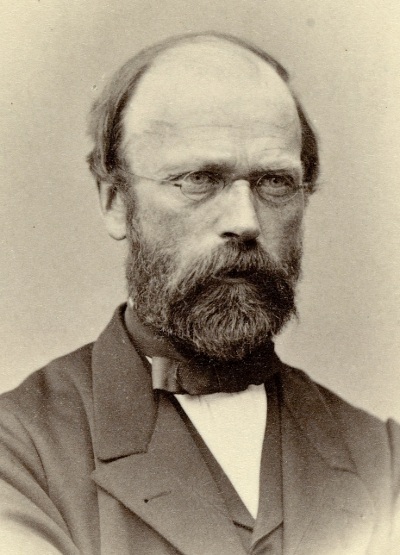 | Jens Andreas Friis (Photo borrowed from the National Archives of Norway) |
Here you find all the articles in the series:
28.09.2007 Why Sami school history?
05.10.2007 Boundless ignorance
12.10.2007 Southerner-teachers encounter the Sami language
19.10.2007 The start of Sami beginner instruction
26.10.2007 The start of education in reindeer-herding
02.11.2007 From Sami to Norwegian vocational training
16.11.2007 Struggle for Sami gymnasium
28.11.2007 School experiences of Norwegian speaking Samis
14.12.2007 Resistence against Sami language and culture
25.01.2008 A strange world
23.05.2009 On Sami teachers
30.05.2009 Life in boarding school
06.06.2009 Sami pupils were bullied
13.06.2009 Sami content in the teaching
20.06.2009 Pupil as interpreter
04.07.2009 How the children quit speaking Sami
10.09.2010 God does not understand Sami
08.10.2010 The point of view of the Norwegianizers
13.10.2010 Men of the church defending the Sami language
02.12.2010 Sami teachers in old times
09.12.2010 Boarding school life in old times
18.12.2010 Sami pupils in special schools
14.01.2012 The parents' struggle for Sami education
21.01.2012 Reluctance and absence
28.01.2012 The school during the war
04.02.2012 Reconstruction and barrack schools
11.02.2012 Curriculums - for Norwegianization and for Sami school
18.02.2012 The great struggle of the curriculum
Sami school history 1
Sami school history 2
Sami school history 3
Sami school history 4
Sami school history 5
Sami school history - main page